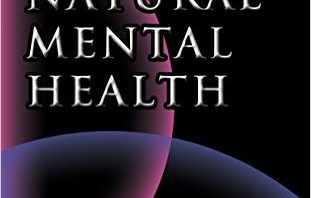Is there hope?
It’s a question that’s come up numerous times since I started on this journey, although the question is rarely that literal. I find it’s what many people who are lost, suffering, or confused are looking for. They’re looking for some tangible anchor to tether onto, some sign that whatever they are going through will end, and that they will come out better on the other side of whatever challenge they are facing.
I have a difficult, strained relationship with hope. You see, I never really experienced the emotional load that comes with hope until I was 29 years old, sitting in a Licensed Clinical Social Worker’s office, being diagnosed with Bipolar Disorder. I experienced hope because this person could see something in me that I could not. Diagnosis gave a name to what had been plaguing me since I was a teenager. I remember thinking maybe this is the reason I couldn’t hold job consistently, kept blowing up relationships, kept having such strange thoughts and feelings. If my problem had a name, then I could understand it and find a way to overcome it.
I distinctly remember the feeling because it was so foreign. I had never felt hope before. I had never really experienced the shift in mentality and warmth that hope provided. But you know what I had experienced by then?
Hopelessness. So much hopelessness. I never looked forward to my future. I always assumed I would end up killing myself by 30 at the latest. I had lost two people I cared about, one to homicide and one to overdose, and witnessed the fallout from a relatively close point of view. I had experienced living in poverty. There’s a thing about poverty that I feel like is never communicated well in the depictions I see of it – the weight of hopelessness.
I distinctly remember how heavy everything felt, like each and every person that understood how screwed they were were like Atlas, bearing the weight of the sky on their shoulders. I’ve never been able to see or feel that heaviness in media depictions of poverty, whether it’s on your nightly news or some fictional story.
And I think it’s those experiences, combined with my own Major Depression and Bipolar Disorder, that makes me hate false, superficial hope so intensely.
“Hate, Dennis? That’s a strong word. Are you sure you mean hate?”
Fuck yes! It took me years to unwind the visceral, gut reaction of anger that resulted from bromides like, “It’ll get better!”, “You just have to have faith!”, and “People care about you!” Because none of those things that I perceived to be superficial bullshit ever made me feel as though as it were true. None of those things really eased the crushing weight I felt on my own shoulders. It all sounded like so much pandering nonsense.
But, after entering the advocacy or activist space, whatever you want to call it, I came to realize that this perspective was off and I was judging the people who made these statements far too harshly. You see, when I really started taking my blogging and work seriously, I quietly promised myself that I would not rely on superficial or false hope. I would make every effort to find sources of real, tangible, actionable hope to offer.
I was nowhere near close to understanding how fucking difficult that would turn out to be. Not only do you have the anger, fear, and alienation of many mentally ill people towards the mental health industry and society to contend with, a lot of it filled with misinformation and manipulation, there’s also the near infinite number of perspectives in people who are receptive, some fueled by mental illness, others fueled by what people believe and how they’ve experienced their lives. Each and every person is their own individual jigsaw puzzle composed of a billion small pieces, all of them sky blue with no corners to start from. (Yeah, that’s right. I used a jigsaw puzzle analogy. …do people still do jigsaw puzzles? Hm. Anyway…)
I do not believe that hope is as strong or powerful as it is portrayed to be. My perspective on this shifted drastically after getting to know other activists with different perspectives and forming not quite personal, not quite professional friendships with mental health professionals and social workers involved in things like outreach.
I think hope is more like a match – you can strike it (inspiration) and it will create a light (hope), but the factors that contribute to hopelessness will, sooner or later, swallow the flame if it is not used to ignite a greater fuel source (a course of action that provides confidence through tangible progress).
I came to realize that a lot of people who are offering those words that made me feel so alienated weren’t doing it because they didn’t understand, it was because they do understand. They understand how difficult it is to not only strike the match, but get the actual fuel burning. From the start, in every conversation I’ve had with people, every support activity I’ve participated in, I look constantly for the tethers that the people I’m talking with can hold onto that will set their fuel ablaze.
But, sometimes, I just can’t see it. Sometimes all I can see is that person is going to need to have patience while things play out or come together. That is a difficult message to deliver to someone in a way that won’t send them crashing into the abyss or destabilizing.
Hope, like inspiration, is not something that will carry a person for a long time. And the process of confronting one’s problems and working to overcome them is not a fast process. It can take years. Personally, I feel like I’m more on a lifelong journey than anything else. Because every time I feel like I fix one thing and learn as much as I can about that, I see something else I can improve that will help bolster my overall wellness and well-being. I don’t know if it’s a process that will ever end for me. Maybe it will? I don’t know.
I’m writing this blog post because after a few recent series of conversations with different people, they all asked the exact same question – is there hope? And that’s a question that I can’t always answer. I have to say that in most situations I’ve been able to find reasonable, tangible anchors for people to hold onto. But sometimes I can’t. Sometimes it’s because I don’t know enough about the person to identify something tangible, other times it’s because I know the person is just trying to manipulate me by providing a fatalistic perspective that they are painting as hopeless to garner sympathy, and other times it’s because there is no other answer than needing to have patience while a situation runs its course.
Furthermore, the perspectives that a lot of people have about hope are just not rooted in reality, as mine weren’t at the start of my own journey. The perception, that came from somewhere and is often repeated, is that we mentally ill people can recover and live a life just like anybody else! Well, that’s sort of true. There are some people who reach that level of recovery. On the other hand, there are a lot more people that don’t – and it’s not that they don’t recover.
What I find to be more common is that through a lot of personal work, therapy, and meds, many recovered mentally ill people get their symptoms under control which allows them to conduct their life – but they still have to make allowances for dealing with their mental illnesses or traumas. We don’t necessarily live our lives like people who do not have this additional weight to carry, and that’s okay. It doesn’t mean that your life can’t be good, productive, or happy. It’s just different. It’s not what is advertised.
I don’t think I necessarily make a good example for mental health recovery because of another super common question I get – are you a happy person? That’s also a difficult question. And it’s difficult because “happy” is an emotion, and emotions come and go. My default state is not happy, so technically, no, I’m not really a happy person.
I’m more of a melancholy person who is able to experience happiness, which is a drastic improvement from the morbidly depressed and unstable person I was for a long time. I tend to think of myself as more of a peaceful person, that is, being largely at peace with who I am and my life thus far. I don’t think anyone would look at me and think, “That is a happy person.” I’m usually mired in my own thoughts and have whatever the male equivalent of resting bitch face is. Resting dick face? Mmm, no.
I would also consider myself an optimist though – because I do have hope for a lot of you and your loved ones – even if I can’t see it myself and still don’t feel right saying the words that contributed to making me feel so isolated and alone for such a long time, even if I have to sometimes say, “I don’t know.” If I didn’t, I would have gave this up a long time ago.
And, an additional note to the other content creators who read my work or who have some interest in trying to spur people to action – it works much better if you tie your message to a tangible action. The most common one I use is, “Have you talked to your doctor/counselor about this? That’s really something you need to explore with a certified professional.” It provides a safe course of action and a tangible anchor for people to tether to. I find a lot of people sit on the fence on whether they should or shouldn’t and often do need an affirmation that it’s the right course of action. Of course, that gets more complicated if the person has had bad experiences with the mental health industry, but that’s kind of outside of the scope of this post.







